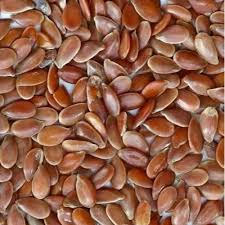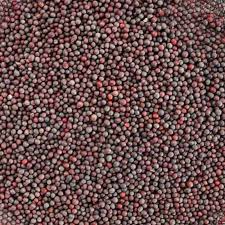Description
Flaxseeds, also known as linseeds or flax seeds, are small, brown or golden seeds harvested from the flax plant (Linum usitatissimum). Here are some key points about flaxseeds:
- Nutritional Profile: Flaxseeds are rich in nutrients, including omega-3 fatty acids, lignans, fiber, protein, vitamins (such as vitamin B1, B6, and vitamin E), and minerals (such as manganese, magnesium, and phosphorus). They are particularly renowned for their high omega-3 fatty acid content, which is beneficial for heart health.
- Omega-3 Fatty Acids: Flaxseeds are one of the best plant-based sources of alpha-linolenic acid (ALA), a type of omega-3 fatty acid. ALA is known for its anti-inflammatory properties and is essential for overall health, particularly heart health and brain function.
- Lignans: Flaxseeds are the richest dietary source of lignans, which are plant compounds with antioxidant and phytoestrogenic properties. Lignans have been studied for their potential health benefits, including reducing the risk of certain cancers, improving cholesterol levels, and supporting hormonal balance.
- Fiber: Flaxseeds are an excellent source of both soluble and insoluble fiber, which can aid digestion, promote regularity, and support gut health. Including flaxseeds in your diet may help regulate bowel movements and prevent constipation.
- Culinary Uses: Flaxseeds can be consumed whole, ground, or in the form of flaxseed oil. Ground flaxseeds are more easily digestible and can be added to smoothies, yogurt, oatmeal, salads, baked goods, and other dishes for a nutty flavor and nutritional boost. Whole flaxseeds can be used as a crunchy topping or added to granola, cereal, or bread.
- Health Benefits: Consuming flaxseeds regularly has been associated with numerous health benefits, including reducing inflammation, lowering blood pressure, improving cholesterol levels, supporting weight management, and reducing the risk of chronic diseases such as heart disease, diabetes, and certain cancers.
- Storage: Flaxseeds should be stored in an airtight container in a cool, dark place, such as a pantry or refrigerator, to prevent them from becoming rancid. Ground flaxseeds have a shorter shelf life and may spoil more quickly, so it’s best to grind them as needed to preserve their freshness.
Specifications
-
Botanical Name
Linum Usitatissimum
-
Common Names
Common Flax, Lin Seeds
-
Purity
Min. 98.50%
-
Moisture
Max. 7%-8%
-
Cleaning
Machine Clean / Sortex Clean
-
GMO
Non Genetically Modified
-
Origin
India
Flaxseed or Linseed in other languages:
Arabic – بذور الكتان (buthur al-kattan)
Chinese – 亚麻籽 (yà má zǐ)
French – graine de lin
German – Leinsamen
Hindi – अलसी के बीज (alsi ke beej)
Spanish – semilla de lino
Urdu – السی کے بیج (alsi ke beej)
Portuguese – linhaça
Dutch – lijnzaad







